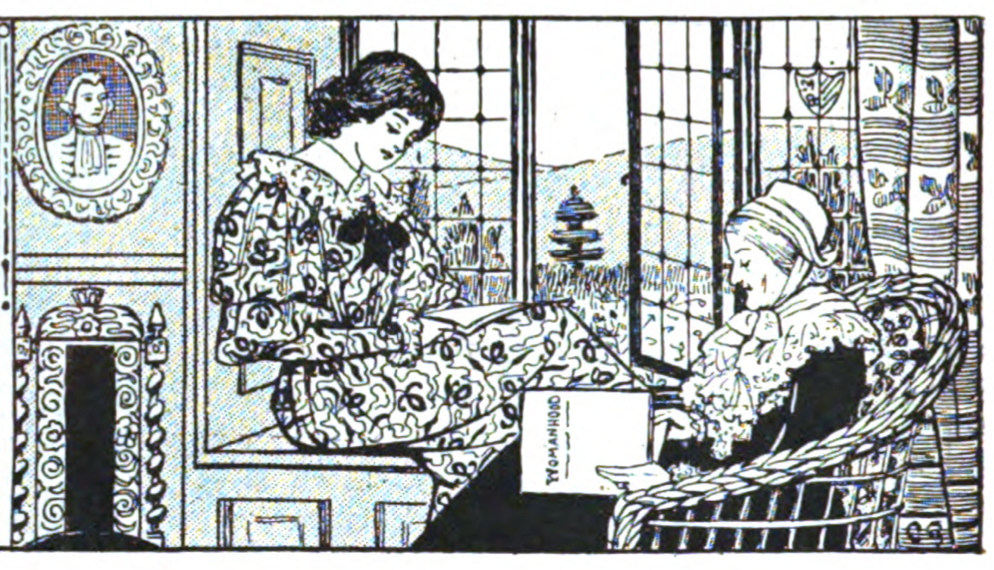…I had written at eight my first literary work, four lines of carefully pencilled writing on a huge piece of foolscap purchased especially for that purpose. Their title, ‘Revelations of an Old Salt’, indicated that they were to be continued, but they never were.
- Bluestocking – Helen Fletcher
Helen Fletcher might be your favorite writer you haven’t discovered yet, and the writer you wished had had more time to write more books. This was how it felt to accidentally discover Fletcher’s Bluestocking years ago while perusing the used book aisles of a welcoming little hovel on 8th Street. It was how a friend felt when I immediately shared my find with her. And I hope and trust it is how it has felt for the many others I purchased the book for over the years. It is a must have book for any bookworm, any bluestocking, who agrees with Fletcher that,”Childhood … is rarely a happy time.”
She opens, “When I was six I knew I was Jesus’ sister.” Easily winning my family’s First Sentence Contest: does the first sentence make you want to read the book?
Fletcher’s childhood is full of barbs. Learning about “the unspeakable error of ‘answering’ grown-ups” as though they are a different species from kids. And the harsh reality of a class-based society: “Class distinction comes hard to children. All the people they love are ineligible as friends and all the eligible friends are impossible to love.” And the harsh reality of a social faux pas: “At the first big party of my life I had made a fart and become a pariah.” Meanwhile, her brother is given a beating from the headmaster “for walking down from football holding the hand” of another boy.
And like many writers, young Helen already knows what she wants and doesn’t want. She wants to be like her aunt Molly “who likes books more than hats, who has been to Oxford to one of those dowdy women’s colleges, who does not WANT to get married.” She “did not want to wear pretty clothes or be a lady but to know all knowledge…” She “wanted to grow up into a person, but not into a woman.”
Fletcher voices the agony of the active sensitive mind that wants to learn, stuck in a family and culture that despises and distrusts learning – illustrating why the rich are magas: “If my mental development was intolerable to her [my mother] could she not have let me develop away from her? It was cruel to let Miss Fleming continue at [school] the repression she had begun at home so well. But the hatred the Kitty Fletchers of this world feel for the intellect is implacable.”
She realizes that isolation from these families and cultures is the only way to the light, to that wonderful world she imagines where “no one would play games with balls”: “I felt that if I could only be alone I should discover a beautiful secret, and I lay awake at night pressing my eyelids apart with my fingers multiplying the minutes I could be alone.”
In her adulthood, Fletcher was a suffragist, and one of the first film reviewers in the age of cinema, joining a small cohort of early film reviewers who were women and who considered film an art. She intiallly published in Time and Tide, founded by Lady Rhondda of the Six Point Group.
Her brother, the aforementioned Ronald, went on to become a well-known BBC announcer and died in 1996.
In her introduction, Dilys Powell’s praise for Bluestocking is spot on: “It doesn’t merely record behaviour and incidents, it notes relationships, it picks up the secret signals which pass between characters who meet and talk and are not aware of signalling.” And Powell hits on Fletcher’s gift that makes her book so timeless and near: “But there is always the sense of the immediate. It is as if the incidents of childhood and adolescence had affected her only yesterday. Sometimes it might be the child, the girl herself writing.”
This kind of sensitivity to others, so common to the introvert, must have helped Fletcher become the film critic she was at Time and Tide, Sunday Graphic, and BBC. Her eye that perceives the film, the actors, the intentions, proved an invaluable resource for her criticism, which lasted for several years until her death in 1947.
This brief description of Helen Fletcher hopes to make more people aware of her book, and to introduce a series of articles reviewing the films that Fletcher reviewed, beginning with The Silver Fleet (1943). All articles can be found on this website by selecting the “Helen Fletcher Movie Reviews” tag.
